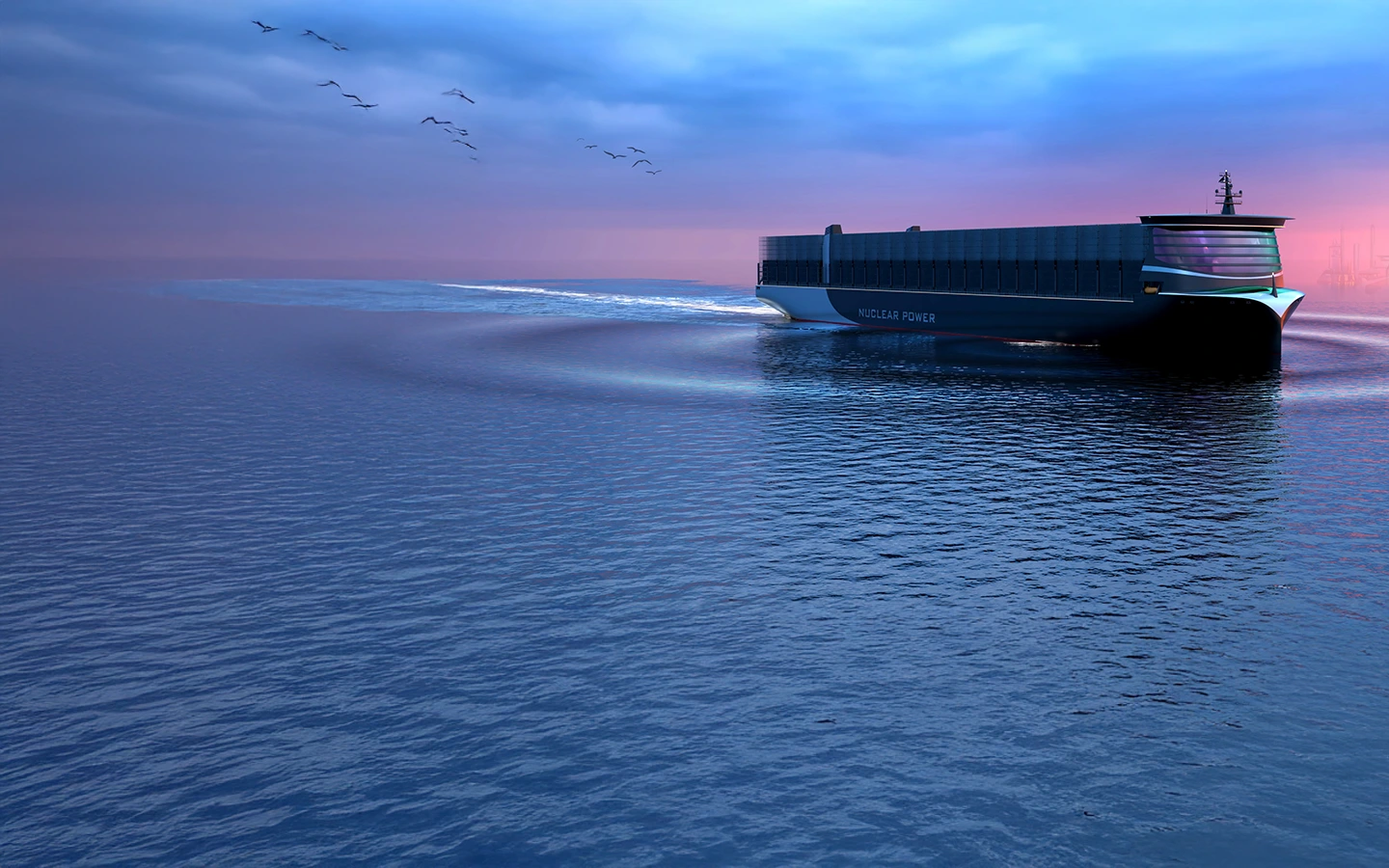Energy
C-Job is implementing greener alternatives to conventional fossil-based fuels in working vessels today. Our goals are to support customers as a knowledge partner, bring the implementation of future fuels and technologies closer to reality, and contribute to a better world by reducing emissions
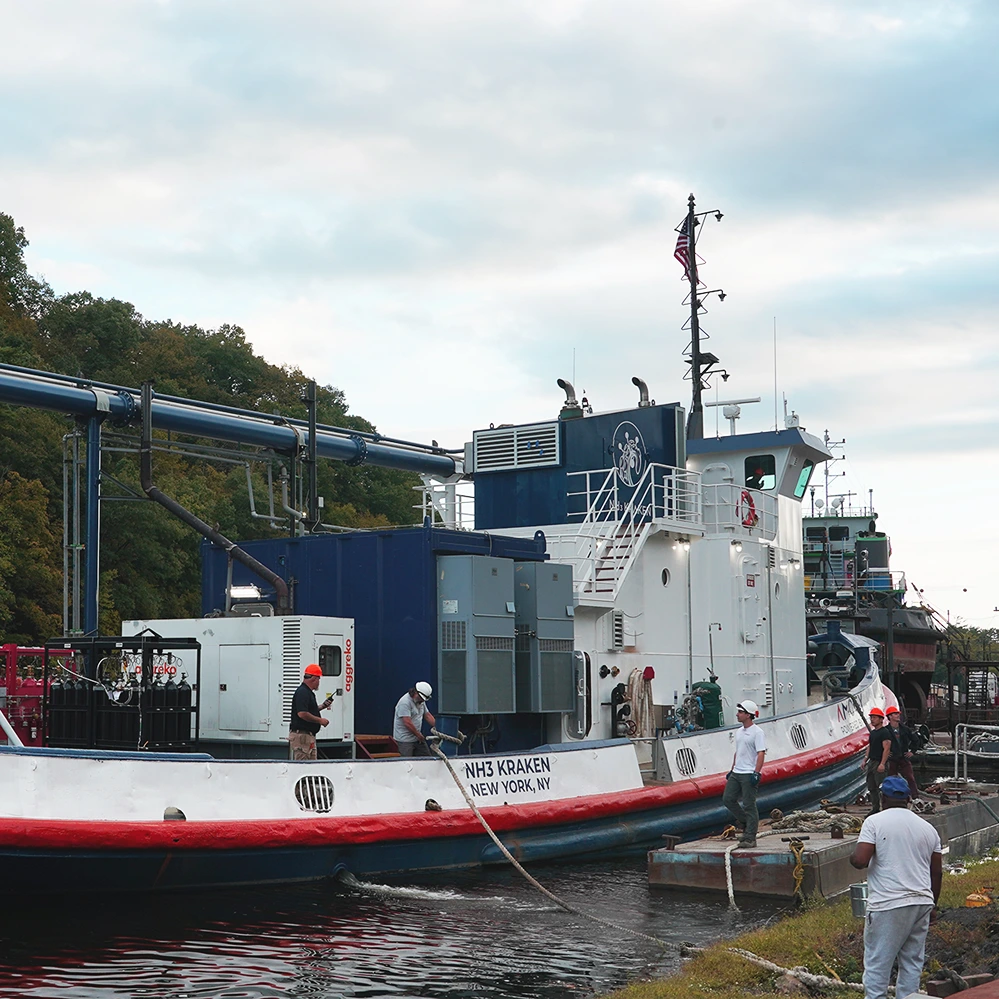
Unrivalled theoretical and applied knowledge
C-Job has extensive R&D and real-world experience of different energy types, and works with numerous energy consortiums. We have provided feasibility studies, concept, basic and detail designs and building supervision for alternative fuels in new and existing vessels.
We apply this knowledge to give customers better insights into the operational applicability, performance and impact of green fuels. This helps you build a stronger business case, reduce risk and ensure your vessel is technically and fiscally viable. In addition, it enables more effective contract negotiation with shipyards and suppliers.
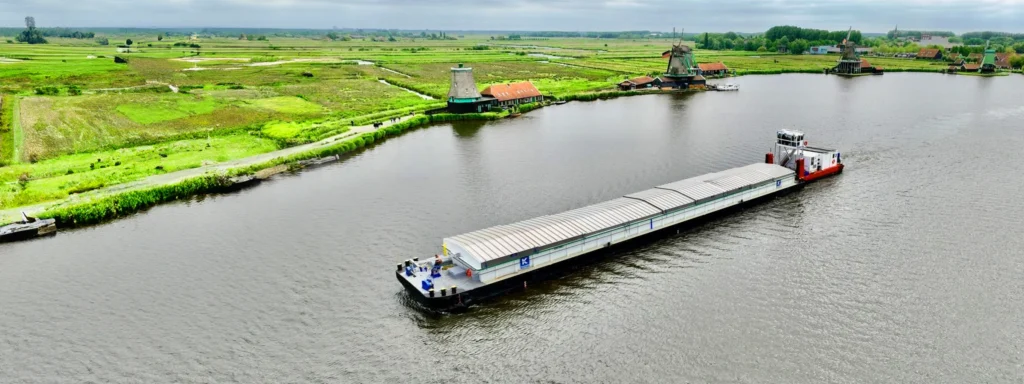
Battery energy
From purely battery-powered vessels to hybrid propulsion systems, C-Job is demonstrating the way forwards in battery technology integration, based on a vessel’s operational profile.

Ammonia energy
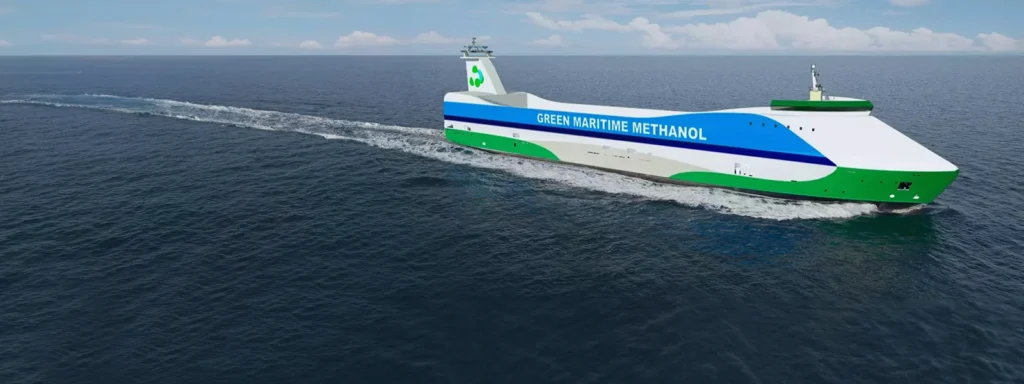
Methanol energy
C-Job were one of the first companies to identify, research and safely implement methanol as a marine fuel. We are now equipping vessels to be future-ready for green methanol.
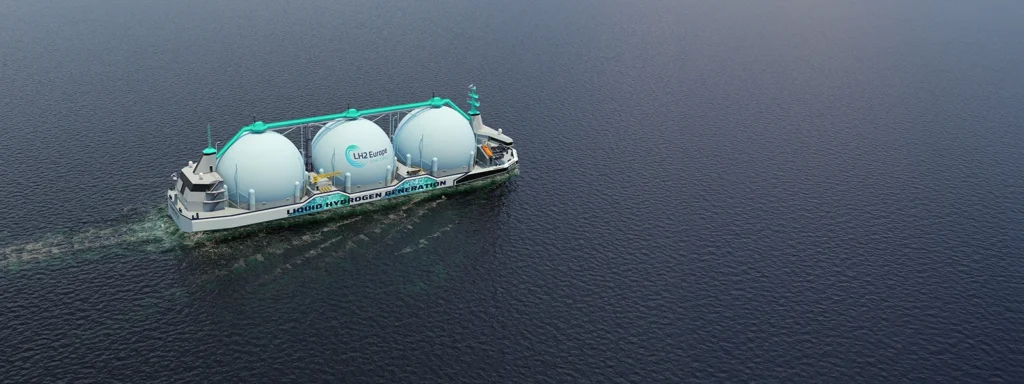
Hydrogen energy
C-Job considers it crucial to consider hydrogen-based renewable fuels to reduce emissions, and we are equipping vessels with the ability to switch between various energy sources, including hydrogen.
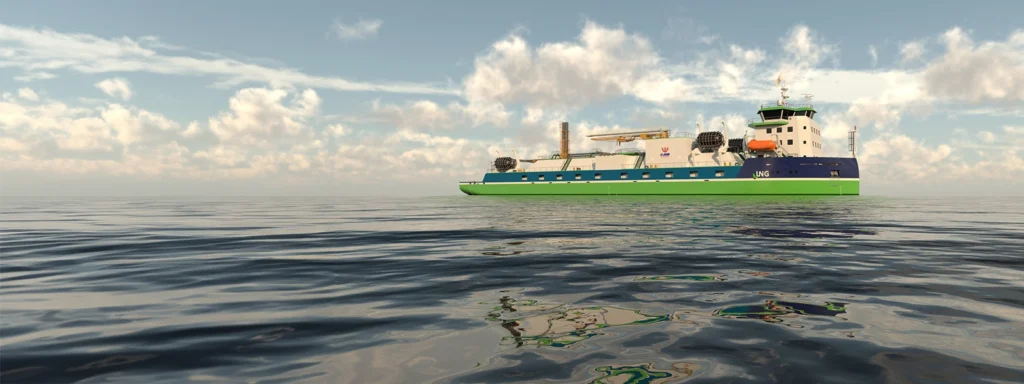
Liquified natural gas (LNG)
Liquefied natural gas (LNG) predominantly consists of methane, converted into liquid form. It requires more space and has more CAPEX compared to methanol. As with methanol, the existing infrastructure for cargo can be expanded for fuel use.
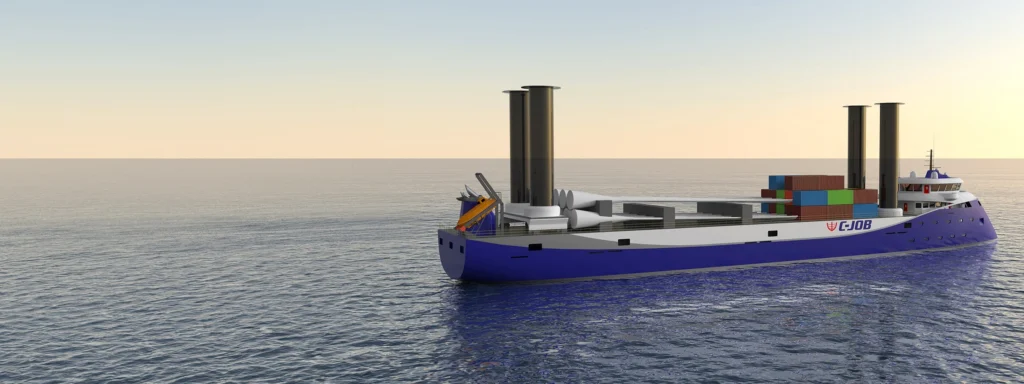
Wind-assisted propulsion
C-Job’s team embraces any solution which results in better performing vessels, which includes wind-assisted propulsion for both new build vessels and retrofits – in combination with our performance prediction program.
Discover more
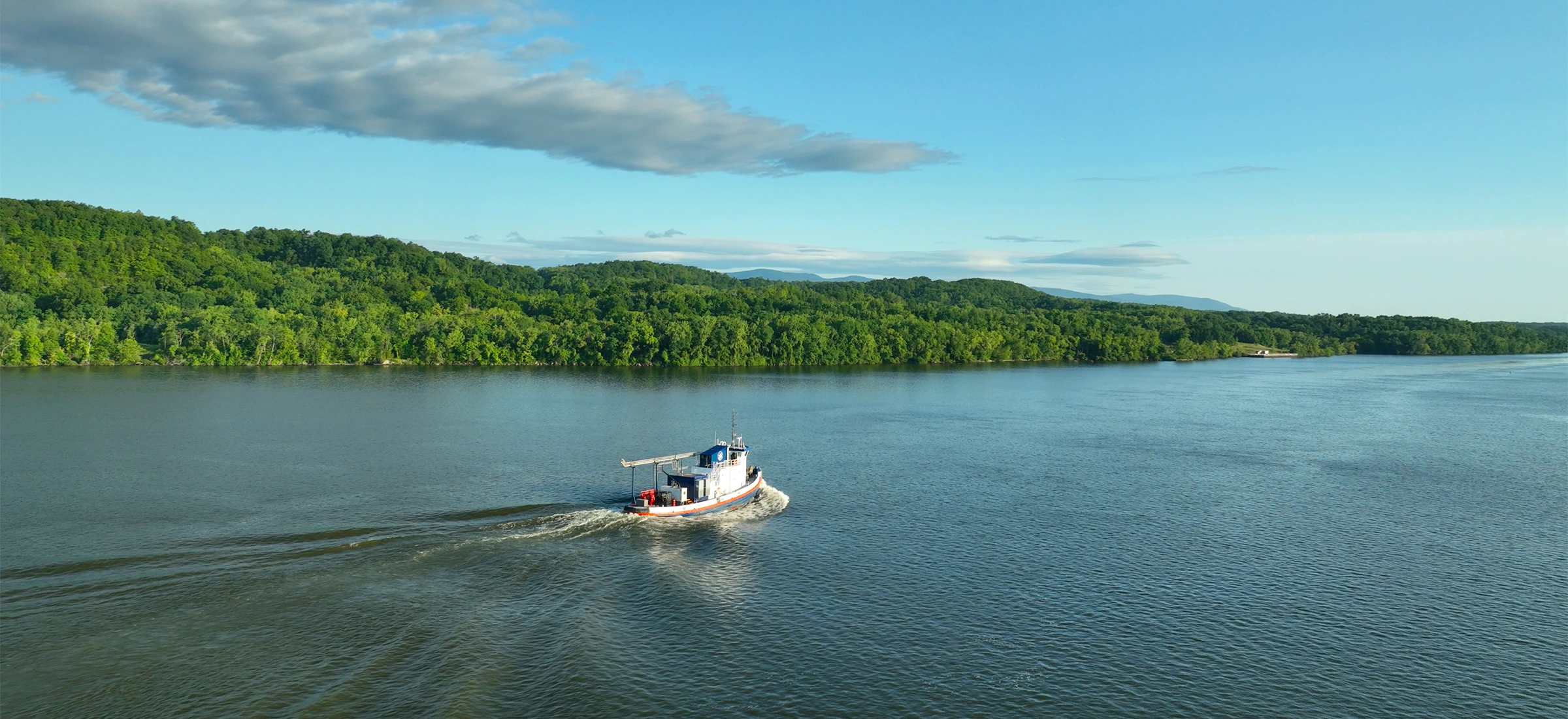
NH₃ Kraken – for Amogy
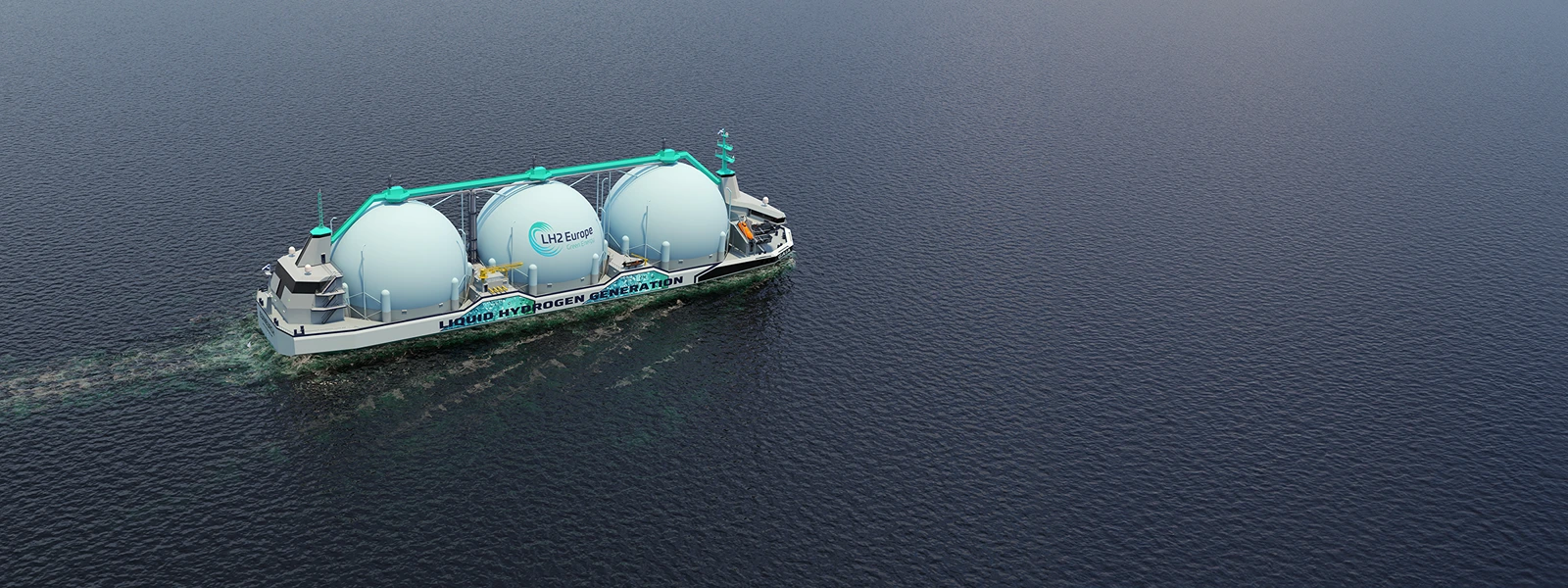
C-Job and LH2 Europe – liquid hydrogen tanker
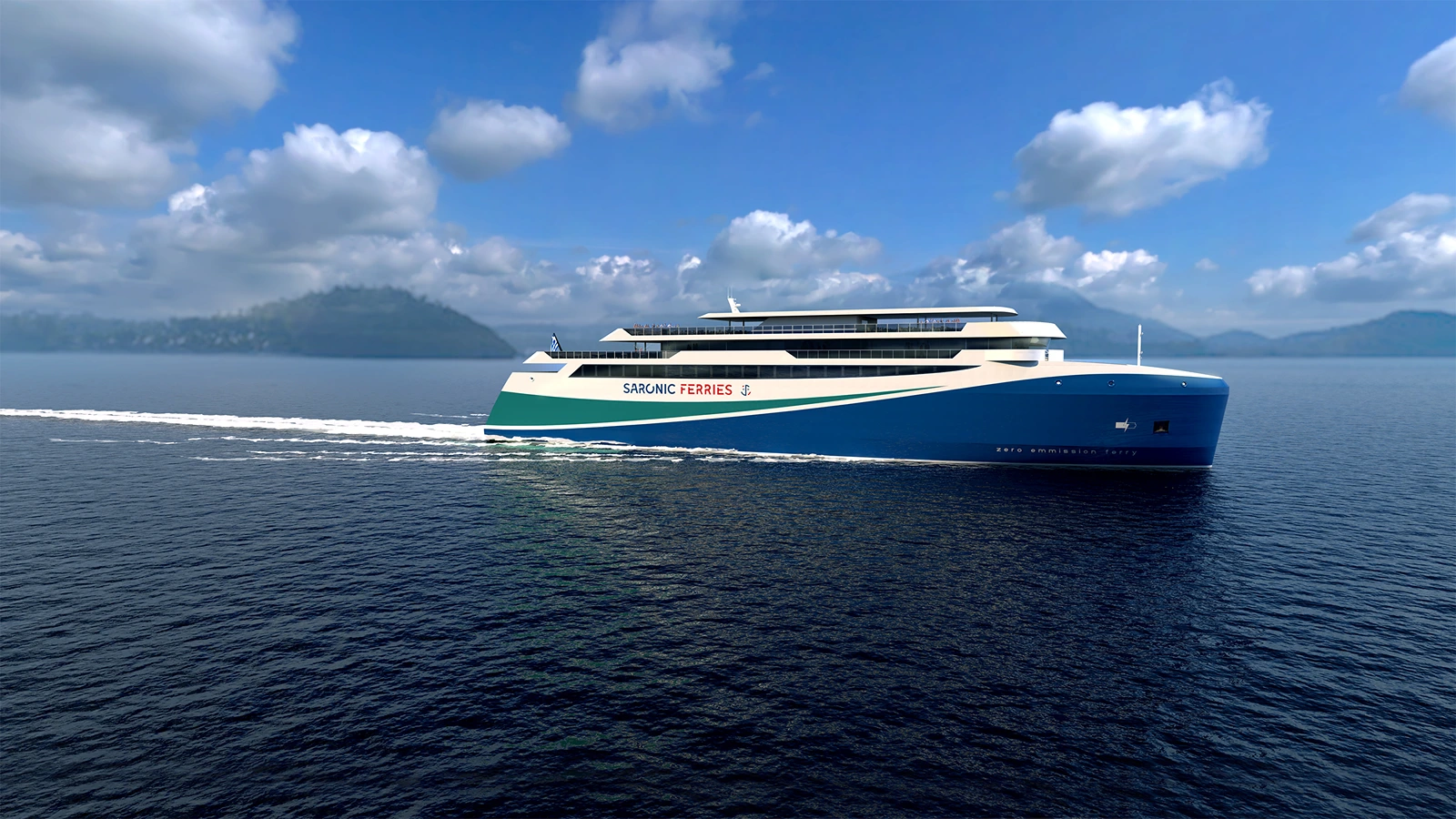
Fully electric ferry – for Saronic Ferries
More about C-Job
Our R&D work has contributed to a ripple effect, as the impact of our vessel designs and technical solutions continues to spread. Discover how we are empowering clients to build better ships, as we propel the maritime industry towards a more sustainable future.
